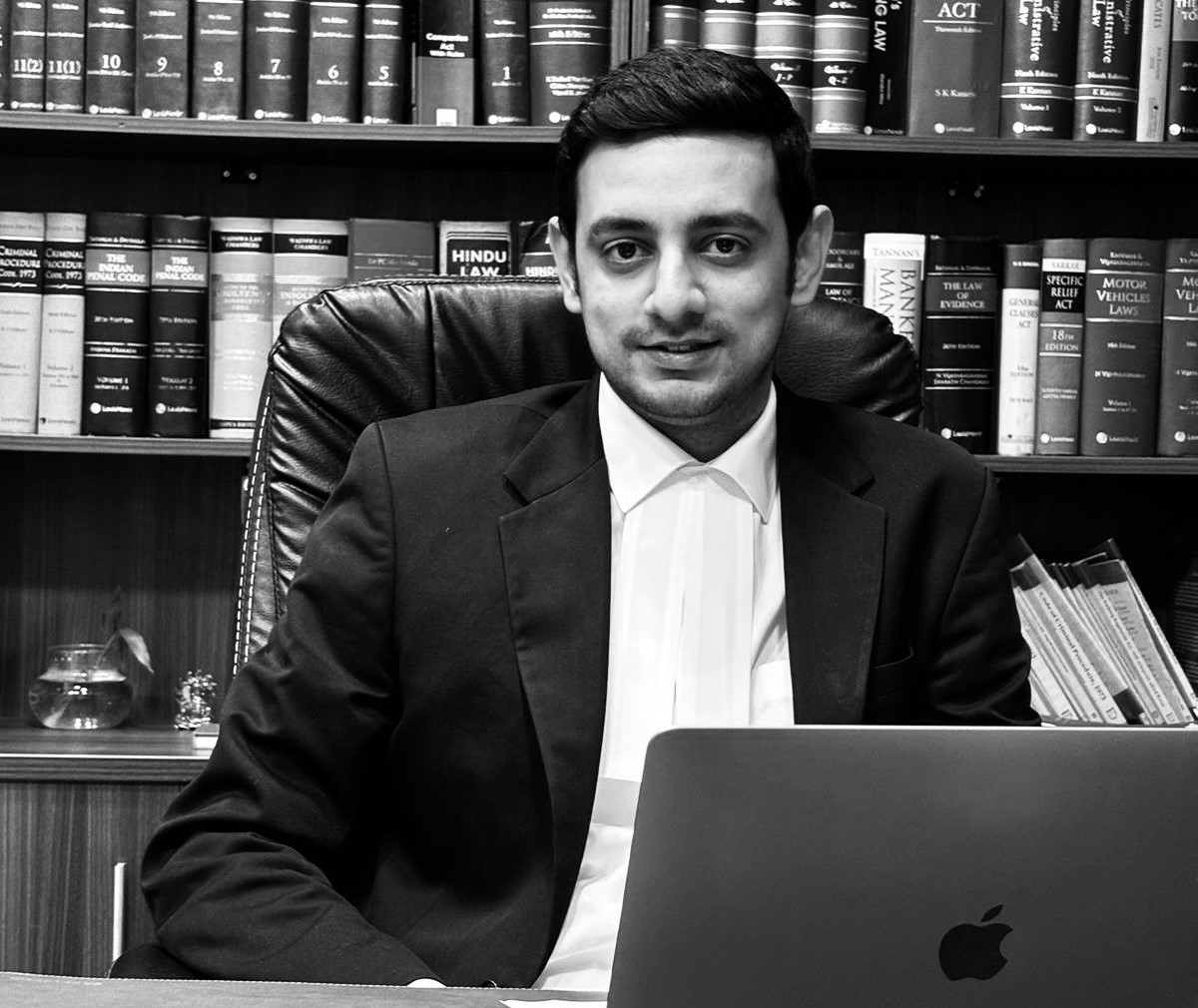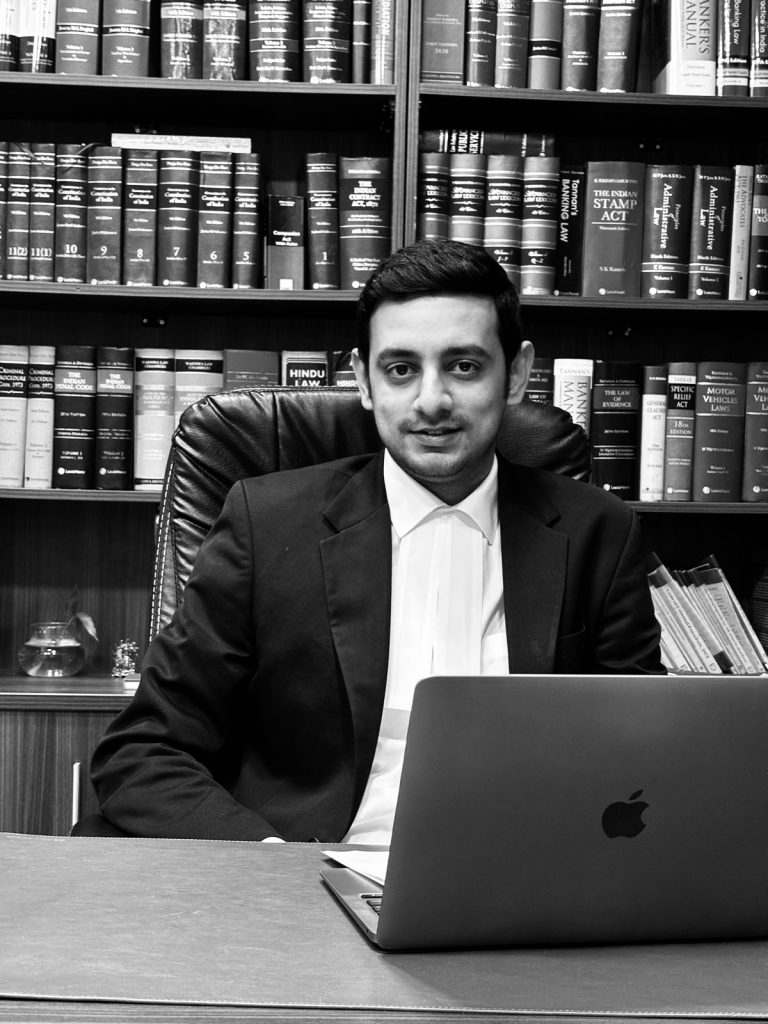This interview has been published by Priyanka Karwa and The SuperLawyer Team
How would you like to introduce yourself to our readers and young freshers.
I am an Advocate-on-Record (AOR) at the Supreme Court of India. I started practising in 2014 with Wadhwa Law Chambers, Delhi before setting up my own full service law chamber (with two other partners) in 2022.
Our key practice areas include arbitrations, Insolvency and Bankruptcy, high stake property litigation, Civil and Commercial Litigation, Criminal and constitutional litigation, Intellectual Property and MSME related litigation with a focus on litigation before Hon’ble Delhi High Court, NCLT/NCLAT and the Hon’ble Supreme Court.
During the course of last 10 years, I have had the opportunity to represent various Indian and multinational companies/government departments before various courts and tribunals in Delhi NCR, Punjab and Haryana High Court, Allahabad High Court, Bombay High Court and other courts in Lucknow, Jabalpur and Himachal Pradesh.
You have a strong academic background, having completed your B.A. LL.B (Hons.) from Dr. RML National Law University. How has your academic journey influenced your approach to legal practice and problem-solving?
I was fortunate to have spent my five years at law school with some of the brightest minds from across the country – who are now some of my closest friends. All of us continue to learn from each other during the course of our respective professional journeys as practising lawyers, at law firms, in house counsels – as we did during our time at law school. Apart from the usual academic rigour, RMLNLU gave me an excellent set of peers.
While law practice can keep you occupied 7 days a week, I try to keep in touch with the academia by teaching seminar courses/taking guest lectures. Infact, preparations for my lectures at NLU Delhi and NUJS Kolkata have often helped me discover new lines of arguments and case laws – which eventually help you while making submissions in court/drafting your pleadings.
Could you describe your current role as an Advocate on Record at the Supreme Court of India? What types of cases do you handle, and what are your primary responsibilities?
My initial years in law practice gave me a lot of exposure to original side litigation at the Delhi High Court, NCLT/NCLAT and District Courts. Original side practice teaches you imperative litigation skills which involves asking the right questions from the client and procuring documents, drafting the pleadings only after one looks up the correct position of law, and most importantly, being precise and not verbose with the pleadings.
It is imperative that a lawyer keeps the above in mind while drafting plaints in Suits, statement of claims in arbitrations and insolvency actions, since the client may not be able to rectify these errors at the Appellate stage.
Having a strong original side practice background always gives you an edge with AOR practice at the Hon’ble Supreme Court. This skill set has certainly helped me with my AOR practice where I take up matters relating to arbitrations, Insolvency and Bankruptcy, high stake property litigation, Civil and Commercial Litigation, Criminal and constitutional litigation, Intellectual Property and MSME related litigation
With your involvement in MSME-related litigation and practice, how do you approach defending recovery actions initiated by MSMEs? What unique challenges and legal considerations come into play in such cases?
With the Government allowing for a completely self-declaration based registration under the MSME Act, a huge number of money recovery actions are now initiated under the MSME Act. If the dispute is contested and not settled before the Facilitation Council, it converts into a regular arbitration. The obvious benefits are better rates of interest given to MSMEs under the MSME Act when compared to regular arbitrations/civil actions for unpaid dues.
However, the self-declaration regime does not require any physical inspection of the proposed MSME unit prior to its registration under the Act. This is resulting in many vendors registering themselves as MSMEs overnight (who may or may not meet the required thresholds of turnover and investments under law for registration as an MSME) and filing their claims under the MSME Act. In my humble opinion, the entire self-declaration regime of registration needs a complete overhaul at least as far as recovery actions under the MSME Act are concerned.
There are however some remedies in the current legal framework to address the aforesaid issue, though not very effective and practical. Some other remedies under the MSME Act include criminal prosecution against the buyer which are not explored routinely but can be very effective, especially in high stake MSME litigation.
In addition to your legal practice, you have a background in writing and travelling. How has your interest in writing come up and what are some of your favourite places you have travelled to.
I used to write ‘letters to the editor’ to various newspapers while I was in school, which my father had suggested. I still have a whole collection of those cut outs kept with me! It is indeed a great way to develop comprehension and improve writing early on – especially for litigating lawyers where you are required to churn out drafts on an everyday basis. I would also write some pieces here and there in college, but the litigation rigour does not allow much time for that anymore.
The RIFF music festival at Jodhpur with its unique dawn/dusk classical concerts, the backwaters at Kerala, the unexplored Turkish coastline and old town Prague have been some of my favourite places to visit.
With a significant portion of your career spent in representing various entities, what advice would you give to aspiring lawyers, What are some key lessons or insights you have learned along your journey that you would like to share with them?
One should explore as many practice areas in the initial few years of practice and focus on reading as many precedents/case laws. Apart from the basics, being a nice and an easy person to work with is a very under-rated skill!
Get in touch with Vipul Kumar –

























